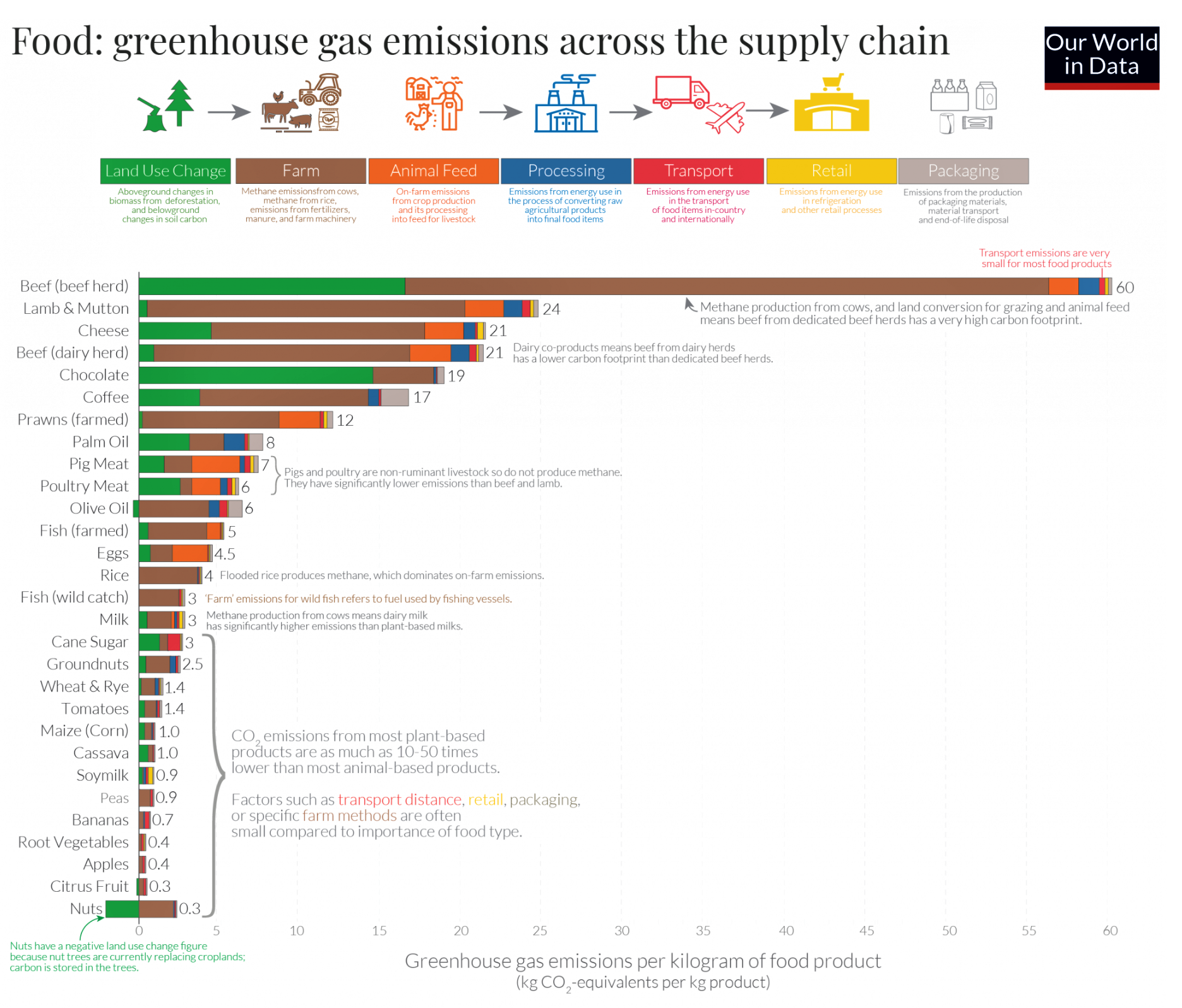A new study on food miles has prompted a distracting debate on the carbon emissions and climate impact of what we eat. The study in the journal Nature Food concludes that the carbon footprint of food miles is double previous estimates and therefore eating local is a more attractive climate solution. The study, along with some resulting misleading headlines, have made it even more frustrating for eco-consumers to decide what to buy and what to eat.
But the debate is obscuring the big picture. The weight of scientific evidence shows that it’s still what you eat, not where it comes from, that has the biggest climate/carbon impact.
The opposing points of view are a result of dueling definitions of food miles. The new study is really comparing apples with oranges and, as always, the devil is in the details.
Food miles have traditionally been defined as the distance-tonnage of food from where it's produced to where it's consumed. The new study’s definition includes emissions from transporting fertilizer, machinery and animal feed as well as from moving the food itself, which obviously leads to a higher emissions total.
One possible takeaway from the new study is that we should be more concerned about the transportation emissions of fruit and veg. But food experts have warned about jumping to conclusions. Among them, respected Oxford University researcher Hannah Ritchie says the new study is misleading in several ways — including overestimating the impact of refrigeration emissions in transporting food and underestimating the advantage of moving foods by ship rather than trucks.
“It's still very much the case that what you eat has a much bigger difference on the carbon footprint of your diet than how far it has travelled to reach you,” Ritchie says.
That’s because, regardless of the debate about food miles, foods like meat and dairy emit far more greenhouse gases than grains, fruits, vegetables and other plant-based foods. And even if transportation emissions were twice what is shown in red in the above chart, they would still account for a very small part of the overall contribution from our current food system.
Even the authors of the new study told Carbon Brief that while eating local does reduce emissions, this should be paired with eating seasonal produce and reducing meat consumption to limit the emissions of our food choices.



